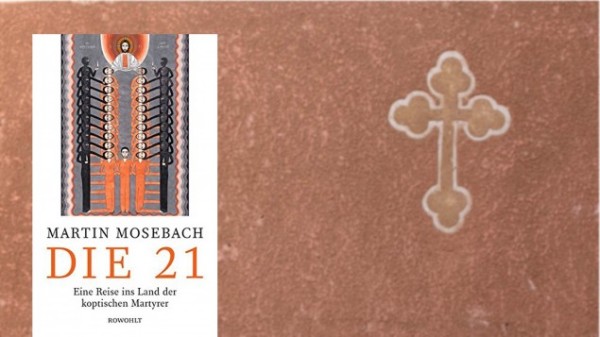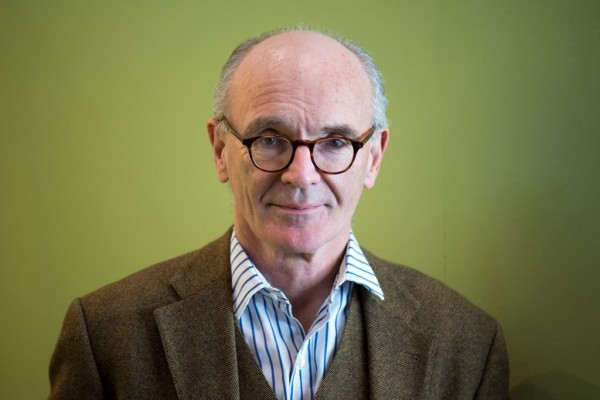The 21 Decapitated Copts – A German author on the importance of the Church of Martyrs for the West

 A book by the German author Martin Mosebach (Frankfurt) is widely discussed in Germany. It was published recently and is titled “Die 21 – Eine Reise ins Land der koptischen Märtyrer, Reinbek: Rowohlt 2018” (The 21 – A Journey into the Land of Coptic Martyrs”). Mosebach writes about the families of those who were beheaded by the Islamic state.
A book by the German author Martin Mosebach (Frankfurt) is widely discussed in Germany. It was published recently and is titled “Die 21 – Eine Reise ins Land der koptischen Märtyrer, Reinbek: Rowohlt 2018” (The 21 – A Journey into the Land of Coptic Martyrs”). Mosebach writes about the families of those who were beheaded by the Islamic state.
The book is being presented to the public at a time when, according to ACN (Church in Need), Christians account for at least 75 percent of all religiously motivated violence and oppression. Some 215 million Christians are affected by persecution from Islamic extremists. Strangely, the people of Western Europe show little interest in the sinister situation of these persecuted Christians. In Germany, the attitude of Christians is similar to that of the United States. American journalist William Kilpatrick states that the lack of interest are due to two main reasons: The people in the West are flooded by the media news and images of the global refugee crisis. The fate of Christians is mentioned marginally. In addition, according to Kilpatrick, some government and media suppress news of persecuted Christians. They wish not to place Islamic religion in a bad light.
Mosebach’s book, on the other hand, highlights the persecution of Christians using example of the Copts of Egypt. The focus is on the 21 Christian migrant workers who were brutally murdered in 2005, in Libya on the beach of Sirte. The writer visited relatives of the victims in Upper Egypt to learn more about these Christians.
He was prompted by a video of the ISS showing the beheading. The ISS gave the video the title “A message written with blood to the world of the cross”. This was addressed to the whole Christian world. The difference to usual IS terror attacks was also the handling of the captured Copts. At gunpoint they were asked, “Do you stand by what you believe?”
What motivated Mosebach in particular was how the victims confessed Christian faith before the execution. They did it in prayer and complete peace. Mosebach reports that he was surprised in the hometowns of the victims, not to find desperate people. Instead, these Christians were proud of their relatives who were, slaughtered by IS. On photo collage, the victims were depicted with crowns on their heads as kings of the heaven. Mosebach was also astonished by the Christian witness of forgiveness: the bereaved did not demand punishment or show any need for revenge.
In the Islamic world, Christians are usually treated as second-class citizens. In Egypt, the Copts who make up an estimated 20 percent of the 90 million people, are not only legally disqualified, but often experience harassment and violence. Yet, the Copts do not feel like inferior fringe groups. Mosebach said in an interview that he found a strong, growing, large, determined church full of people who have not been pushed back against the wall at all, but have really faced martyrdom as a great triumph, like the Christians of the first centuries.
With his book, Mosebach gives the Christians of the West an incentive to think about their identity. From the Christian Copts, according to Mosebach, above all, one can learn to confess the cross instead of hiding it. The Christian confession is now more significant in the West than ever because pseudo- and anti-Christian tendencies are on the rise.
Source: OCP

